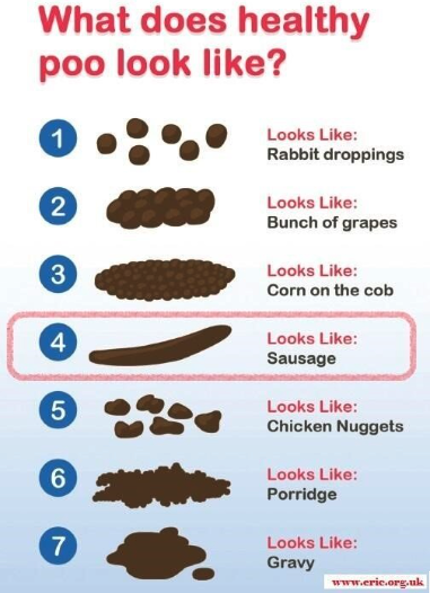Constipation in babies, toddlers and older children…what can you do to help?
Written by Claire Burgess, Family Consultant
*If your child is constipated it is important to get this checked out by your GP to ascertain what might be causing this and then looking at what needs to happen next. If it is put down to constipation because of normal reasons like diet, fluids etc then some of the points below should be of some help!
Some of the signs that your baby or child is constipated are:
They haven’t done a poo at least 3 times in the last week or are doing more than 3 poos a day
Their poo is large and hard
Their poo looks like pellets or ‘rabbit droppings’
They are straining when they need to do a poo or they are in pain
There is some bleeding during or after doing a poo due to it being hard and large
They have a poor appetite or complain of stomach pain which improves when they do a poo.
Swollen or bloated tummy
Regular and foul-smelling wind
Doing very large poo or poo in a ball like shape
Poo marks in their nappy or underwear
As per my first point above, sometimes doing frequent (more than 3 poos in a day) can mean that your child is constipated, it can be that they are straining and it is runny poo which is coming out due to the poo being compacted – it is important not to just assume that it is diarrhoea and to consider that it could be constipation. Also your baby or child might be pooing once a day but this can still mean that they are constipated, you need to look at the consistency and size of the poo as well.
Bristol stool chart
How you might treat constipation is going to be dependent on the child’s age and also the reason for the constipation.
Newborns and babies under 6 months:
Purely breastfed babies can sometimes go several days without doing a poo. This doesn’t necessarily mean that they are constipated. If they are pooing normally with soft or liquid like poos then this is completely normal.
For a formula fed baby you need to make sure that the formula suits your baby as different babies can tolerate different milks. Some milks will be better than others and some can cause babies to be constipated which needs to be a consideration if this is happening with your baby.
Formula fed babies may need to have some small amounts of cooled boiled water between feeds if they are very constipated (no more than 30mls at a time otherwise it can impact on the milk intake as their tummy can fill up on water), breast fed babies do not need any water to be given.
Massage can be a lovely relaxing way to help with constipation and to get things moving. There are various different movements which can be very effective for this but the main ones are massaging the tummy clockwise and also doing cycling movements with their legs.
Giving your baby a warm bath can help to relax them and therefore their bowel. Massaging the tummy whilst in the bath can also help to get things moving.
Babies 6 months + and who are weaning or have weaned
When you start the process of weaning your baby’s poo will change and it might become less frequent to what it has been when just on milk. Weaning can sometimes bring on constipation as the gut is trying to get used to breaking down solid foods. It is important to ensure that you are offering your baby a balance in their diet and they are getting all of the different food groups in order to get the gut working effectively. These tips will help:
Ensuring that there is fibre in your baby’s diet. Fibre helps to retain fluid in the poo, while in turn keeping it soft and easier to push out. You might want to offer fibre rich foods in the mornings so that it can get to work and your little one will poo during the day. Offering too much fibre at the end of the day can lead to your little one needing to poo during the night.
Offering any of the ‘P’ foods so prunes, pears, plums along with other fruits such as strawberries, apples and figs as these are also high in fibre!
Offering water at mealtimes can help, they can just be sips but will help with the fluid intake. Tap water is fine to offer from 6 months old *if you are outside of the UK then you need to check the water quality for the area you are in prior to giving it to your baby .
If your baby is over 12 months and has moved on to cow’s milk then try to keep a balance of milk and water. Milk can sometimes (if drinking too much) make the constipation worse.
As with newborns, massage and warm baths can also help.
Potty/toilet training toddlers and older children:
Once children are potty trained it can often be a point where constipation can be an issue. This can be due to other changes, such as with their diet, but commonly it can be to do with holding their poo as they are not wearing a nappy and don’t want to do a poo on the potty or toilet. All of the points that I have raised above do come in here too so make sure that your child continues to have a good balanced diet with fibre and also ensure that fluid intake is appropriate. Here are some other ways to help with overcoming constipation in this age group:
When your little one is on the toilet and finding it difficult to get things moving, getting them to rock back and forth can help. The actions of “row row row your boat” with younger children can help as not only the action but the singing helps to relax the tummy muscles.
Blowing bubbles. Having some bubbles in the bathroom which you can get your little one to blow whilst sitting on the toilet .
Exercise and moving will help make the body work to move the food through the body and then getting the poo through before it is too dry or hard.
Encourage fluid intake, ideally water throughout the day, as this will help to keep the poo soft and easy to pass. Ideally your child should be drinking 6-8 cups of water during the day.
The position that your child is in on the potty or toilet is key. For toddlers and older children when on the toilet or potty get them to sit in a squat position or with their knees slightly higher than their hips and their feet on a flat surface - this is the ideal position for pooing (and is also good for adults!).
Have a good toileting routine. Have you noticed that your child has a tendency to hold their poo as they don’t want to use the toilet at nursery/school etc? This can then lead to constipation, so helping them to feel relaxed with going will help. If you can encourage them to go for a poo prior to leaving the house or as soon as they are home, this will help with the routine and will help to eliminate the issues with holding.
Allow them time on the toilet, when they are constipated they may need to be there a little longer than we would normally suggest. Encourage them to sit for 5-10 mins if they are constipated so that it gives the body time to relax and to get things moving through.
Here are some great resources which might help:
How to Poo - Dr Ranj : https://www.youtube.com/watch?v=Mq4bAVhvGHw
ERIC website : https://eric.org.uk/childrens-bowels/constipation-in-children/
Toilet Training resources on Amazon
Poo Go Home and Sneaky Poo from ERIC
If you are trying the above approaches and your child is not pooing, is in pain or has other symptoms such as high temperature or generally unwell then you do need to make contact with your doctor. If it is constipation and you are not seeing improvement, then your GP may prescribe some laxatives but only give these to your child on the advice of your GP.
For more information about Toilet Training you might be interested in ‘Your guide to Toilet Training’ - a step-by-step video guide - click here to find out more!
Don’t forget that we offer parent consultations should you need support with anything from sleep to behaviour and so much more! Details of the packages we offer can be found here.
We also have a podcast with lots of episodes on toilet training - ‘Newborn to Teen and Everything in Between’ - listen here.
This blog contains affiliate links.




